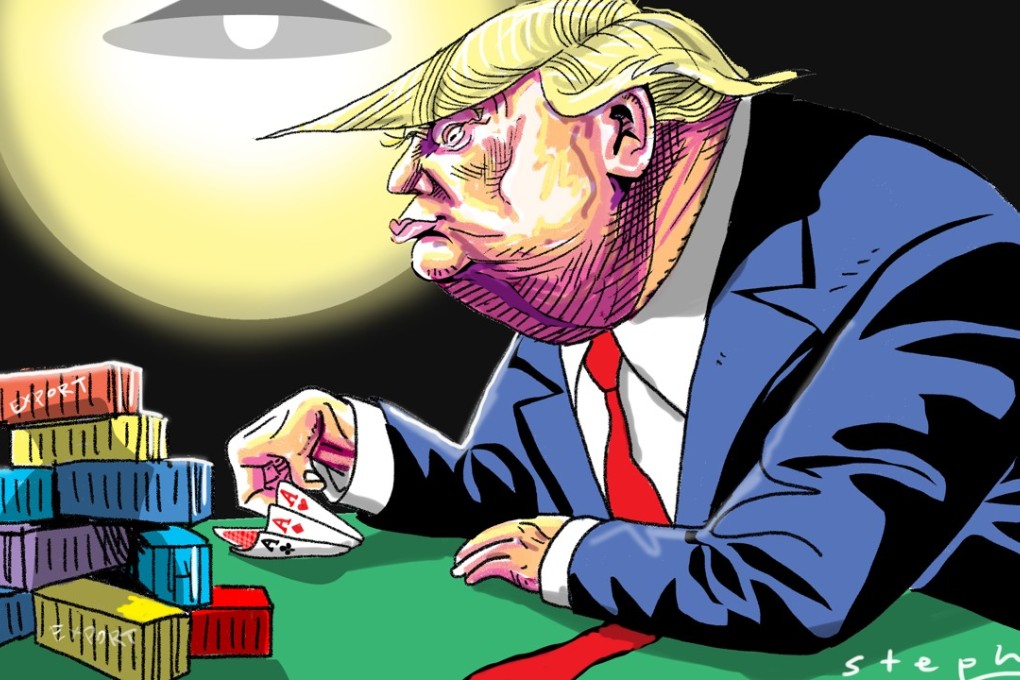Opinion | US-China trade war is a win-win for Washington (at least in Trump’s eyes)
Drew Thompson says Beijing has it wrong if it thinks Trump’s trade strategy is about containment, or a spillover of domestic politics. Rather, the president believes China will back down and create a level playing field for US companies, or firms will source imports from elsewhere

US President Donald Trump has focused on trade and China’s economic rise for decades. Unlike national security issues, he is knowledgeable and passionate about trade, taxes and financial regulations. He advocated a fairer, more reciprocal trade relationship with China throughout his campaign, and quickly made it a priority issue after taking office.
Either China will revise its industrial policy to allow US companies reciprocal market access, or the tariffs will cause US companies to disengage from China and bring manufacturing back to the US, or source imports from countries that do not pose a long-term threat to US security.
Trump’s top priority has been to seek reciprocity in what he sees as an unfair relationship characterised by a massive trade imbalance and persistent efforts to steal American technology and limit American companies’ market access.
The Trump administration, like its predecessors, has engaged with China to open and reform its markets, and transparently recorded Chinese acts, policies and practices that it finds objectionable.
The West Wing may be in turmoil, but when the president looks out of his window at the country, he doubtless likes what he sees
